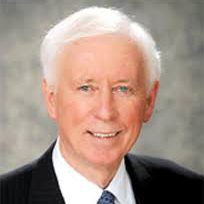Collective Action by Physicians
In recent years in countries where physicians’ satisfaction with their working conditions has decreased, collective action by physicians has become increasingly common.
Physicians carry out protest action and sanctions including strikes in order to improve direct and indirect working conditions that also may affect patient care. In doing this physicians must consider not only their duty to individual patients, but also their responsibility to improve the system such that it meets the requirements of accessibility and quality.
Physician collective actions such as strikes often give rise to public debate on ethical and moral issues. It was in an attempt to address these difficult issues that the General Assembly of the World Medical Association at its meeting last week in Bangkok extensively debated and ultimately passed a WMA statement on The Ethical Implications of Collective Action by Physicians.
Explicit in the debate was the observation that this document is not meant to deal with the legal aspects of collective action, which will vary from country to country. Rather it was meant to provide guidance to physicians in their ethical conduct if they decide to take collective action.
Approved by the Assembly were the following guidelines.
- Physicians who take part in collective action are not exempt from their ethical or professional obligations to patients.
- Even when the action taken is not organized by or associated with the National Medical Association (NMA), the NMA should ensure that the individual physician is aware of and abides by his or her ethical obligations.
- Whenever, possible, physicians should press for reforms through non-violent public demonstrations, lobbying and publicity or informational campaigns or negotiation or mediation.
- If involved in collective action, NMAs should act to minimize the harm to the public and ensure that essential and emergency health services, and the continuity of care, are provided throughout a strike. Further NMAs should advocate for measures to review exceptional cases.
If involved in collective action, NMAs should provide continuous and up-to-date information to their patients and the general public with regard to the demands of the conflict and the actions being undertaken. The general public must be kept informed in a timely manner about any strike actions and the restrictions they may have on health care.

